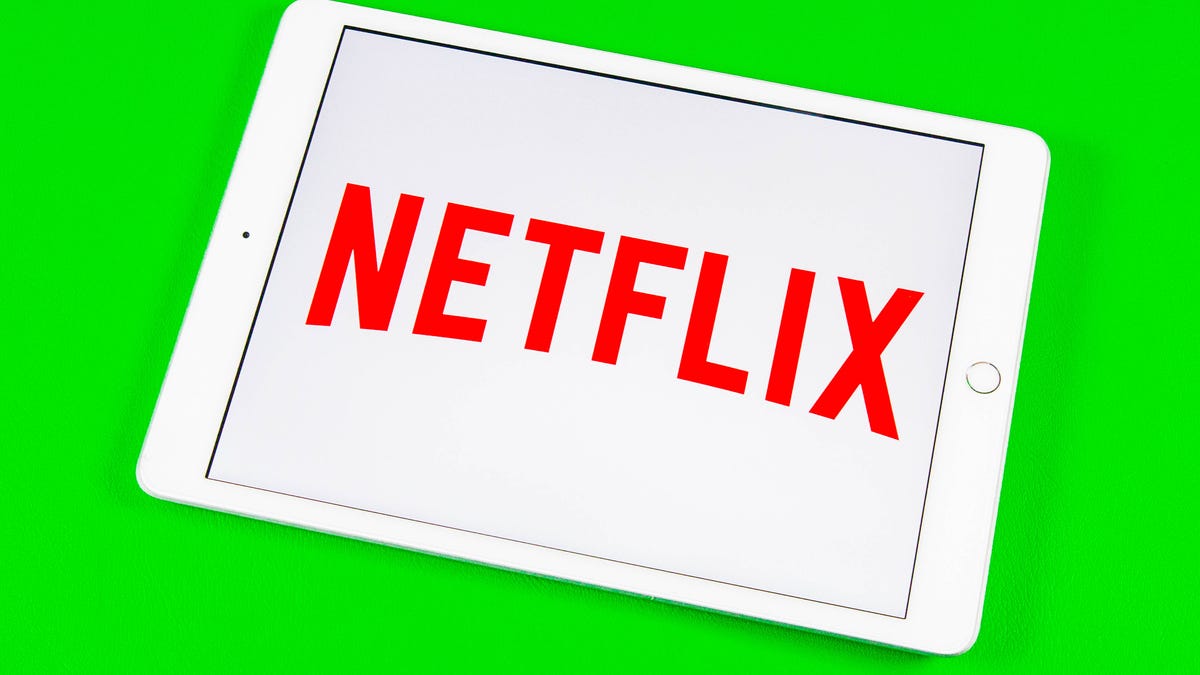Netflix Lost Nearly 1M Subscribers -- and That's Considered Good News
It's the biggest drop ever, but Netflix had expected it to be even worse.

Netflix is the biggest subscription streaming-video service by members.
Netflix lost fewer subscribers than feared in its latest quarter, reporting a significant decrease in members overall -- but only after warning it would suffer a more dramatic drop.
Earlier this year, Netflix reported its first decline in membership in more than a decade -- a dip that was supposed to presage an even deeper plunge in subscriptions now. But Netflix, still the world's dominant streaming-video subscription service, said subscribers fell by 970,000 to 220.67 million total in April through June, according to its second-quarter report Tuesday.
That still the deepest plunge in membership the company has ever reported, but it beats Netflix's April guidance that it would lose 2 million members worldwide. (Analysts on average essentially matched their estimate to Netflix's guidance, according to a survey by Refinitiv.)
It's "tough, in some ways, losing 1 million and calling it success," Netflix co-CEO Reed Hastings said late Tuesday in a recorded discussion of the results. "But really, we're set up very well for the next year."
Still, Netflix's outlook for the third quarter fell short of analysts' expectations, with Netflix predicting it would gain 1 million members versus the consensus estimate for a 1.8 million subscriber increase.
Investors welcomed the news all the same, after Netflix's share price has taken a beating this year. In premarket trading Wednesday, Netflix shares were up 4% to $209.72. But the stock has lost two-thirds of its value so far this year, as Netflix's suddenly shrinking membership has undermined its status as a Wall Street darling, just as it has buffeted Hollywood's confidence in streaming as the engine for television's future.
Years of Netflix's unflagging subscriber growth pushed nearly all of Hollywood's major media companies to pour billions of dollars into their own streaming operations. These so-called streaming wars brought about a wave of new services, including Apple TV Plus, Disney Plus, HBO Max, Peacock and Paramount Plus -- a flood of streaming options that has complicated how many services you must use (and, often, pay for) to watch your favorite shows and movies online.
Now, feeling the heat of intensifying competition to hold onto your attention and your subscription account, Netflix is pursuing strategies it had dismissed for years.
For one, Netflix is testing password-sharing fees, aiming to get more than 100 million households that are already watching Netflix but not paying for it directly.
For now, these experiments are confined to Latin America, but Netflix said Tuesday it's planning to roll out a fee structure for account sharing in 2023.
Right now it's testing two schemes. In its first, Netflix charges a fee to add additional memberships as official "sub" accounts. Next, Netflix said it would try a new method starting next month, which will charge you to add more "homes" where you can stream Netflix in addition to one primary residence, with a limit on how many additional homes you can add depending on how much you're already paying for Netflix.
The company also plans to launch cheaper subscriptions that are supported by advertising. Even though Netflix blazed the trail for streaming TV, its ad-free-only strategy has fallen behind the standards of the industry. As new competitors launched, they set up memberships that give viewers like you more options. Now most of Netflix's rivals have a multitier model, typically offering cheaper memberships with ads, as well as more expensive subscriptions that are ad-free.
More streaming advice
- 10 Ways to Save Money on Streaming
- How to Cut the Cable TV Cord in 2023
- See More at Streaming TV Insider
Elsewhere in its report, Netflix said that membership in the US and Canada, its biggest single region (for now), was down 1.3 million for a total of 73.28 million. Subscriptions also fell in the Europe, Middle East and Africa, declining by 770,000 to 72.97 million.
But in the Asia Pacific region, Netflix added 1.08 million subscribers to hit 34.8 million, and in Latin America, the company added a slim 10,000 new members for a total of 39.62 million there.
Overall in the latest period, Netflix reported a profit of $1.44 billion, or $3.20 a share, compared with $1.35 billion, or $2.97 a share, a year earlier. Revenue rose 8.6% to $7.97 billion.
Analysts on average expected per-share profit of $2.75 and $8.04 billion in revenue.

